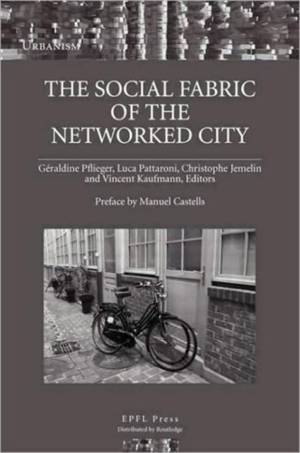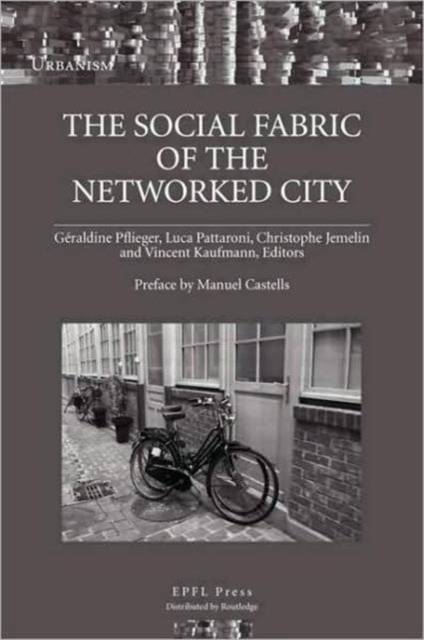
Je cadeautjes zeker op tijd in huis hebben voor de feestdagen? Kom langs in onze winkels en vind het perfecte geschenk!
- Afhalen na 1 uur in een winkel met voorraad
- Gratis thuislevering in België vanaf € 30
- Ruim aanbod met 7 miljoen producten
Je cadeautjes zeker op tijd in huis hebben voor de feestdagen? Kom langs in onze winkels en vind het perfecte geschenk!
- Afhalen na 1 uur in een winkel met voorraad
- Gratis thuislevering in België vanaf € 30
- Ruim aanbod met 7 miljoen producten
Zoeken
The Social Fabric of the Networked City
Christophe Jemelin, Géraldine Pflieger, Luca Pattaroni, Vincent Kaufmann
Paperback | Engels
€ 167,95
+ 335 punten
Omschrijving
This book is constructed around the work of Manuel Castells on the space of places, the space of flows and the networked city. Following an introduction by Castells, in which he sets out the theoretical and empirical framework to be followed, the book features nine contributions focusing on the transformation of the fabric of the networked city in terms of policies and social practices. The book aims to rethink sociological perspectives on urban phenomena through a dynamic exploration of the links between infrastructural and technological aspects of urban order, power relations and everyday life experiences. This reappraisal is based on contemporary trends in social theory. The proposed perspective also avoids the immaterialisation of post-modern urban analysis and the material determinism of the structural approach to the city. Without elaborating on the artificial dimensions between technology and society; between nature and culture; or between science and politics, the texts eevaluate the role of objects and conventional elements (such as codes and regulations) in the transformation of the city.
Specificaties
Betrokkenen
- Auteur(s):
- Uitgeverij:
Inhoud
- Aantal bladzijden:
- 244
- Taal:
- Engels
Eigenschappen
- Productcode (EAN):
- 9780415461443
- Verschijningsdatum:
- 1/07/2008
- Uitvoering:
- Paperback
- Formaat:
- Trade paperback (VS)
- Afmetingen:
- 165 mm x 244 mm
- Gewicht:
- 544 g

Alleen bij Standaard Boekhandel
+ 335 punten op je klantenkaart van Standaard Boekhandel
Beoordelingen
We publiceren alleen reviews die voldoen aan de voorwaarden voor reviews. Bekijk onze voorwaarden voor reviews.









